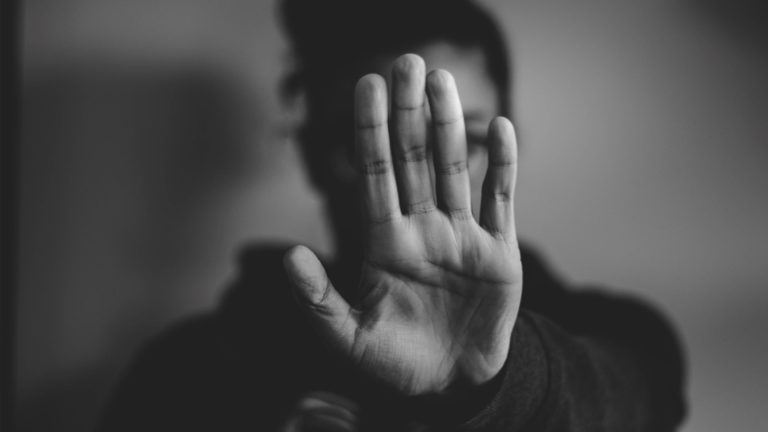According to United Nations High Commission for Refugees (UNHCR), Sub-Saharan Africa hosts more than 26% of the world’s refugee population. Nearly one third of the people that the UNHCR are currently working with live in Africa (11 million out of 35.8 million). These refugees are mainly a result of conflict in countries such as Central African Republic, Nigeria, South Sudan, Somalia and Burundi, among others.
Prolonged conflict destroys the fabric of society and radically changes people’s way of life. This is true all over Africa, where conflict results in change and that change has created more conflict, leading to a vicious cycle of conflict. These conflicts present challenging circumstances for the church but also opportunities to offer real hope. For where there is darkness, pain, and suffering the church is called to bring light of the gospel.
Prolonged conflict destroys the fabric of society and radically changes people’s way of life. This is true all over Africa, where conflict results in change and that change has created more conflict, leading to a vicious cycle of conflict.
The circumstances caused by the conflicts present opportunities for the church to share the gospel, which then leads to true and lasting transformation of people and even societies. When the gospel is preached is both saves and equips. Training refugees that have forcefully fled their homes empowers them to return fearlessly, influencing society through church planting.
A case in point is the 1.5 million South Sudanese found in Ugandan refugee camps. These refugees fled in the 2013 crisis. There are various commendable Christian efforts to intervene using relief and rehabilitation among the refugees. But relief is often merely short term, whereas the gospel is long term. It will be indispensable long after the refugee returns home. Amidst the relief work, we are seeing an indigenous church planting movement. In the refugee camps, small vibrant churches are planting many more small churches to reach the refugees with the gospel. These churches are characterised by:
- Leaders that are themselves refugees
- Church populations of less than 100 people, mainly women and children
- Meeting in temporary structures, mainly tent or grass material
- Close communities where people live together and know each other personally
- Church locations that are focal points for community engagement by different agencies
These churches are influencing the refugee camps by the gospel and have great potential to influence the countries of origin too. Training leaders in the refugee camps is critical in empowering them towards transforming society. For the conflicts in Africa to yield positive change, the refugees must steer that change through the gospel. By God’s grace, the present conflicts and crisis are an opportunity for Christians to influence their societies presently and in the future.
In the Bible we see leaders developed in times of refugee and displacement situations. Abraham fled famine into Egypt (Genesis 12:10), Jacob fled famine into Egypt (Genesis 27:42-44), Joseph was trafficked into Egypt (Genesis 37:28), Moses fled Egypt (Exodus 2:15), David fled from Saul (1 Samuel 21:10), Nehemiah lived in Babylonian captivity (Ezra 2:1-2) Esther and Mordecai lived in exile in Babylon (Esther 2:5-7), Daniel lived Babylon (Daniel 1:2-6), Jesus and his parents fled to Egypt (Matthew 2:13-15).
Refugees should be trained to share the gospel and plant churches that will transform their community.
Each of these biblical characters fled forcefully and yet was able to positively influence their society, some bringing about significant transformation. Refugees should be trained to share the gospel and plant churches that will transform their community. Christians equipped with the gospel of Christ are the only hope for healing our broken continent.
Christians equipped with the gospel of Christ are the only hope for healing our broken continent.
Uganda is no stranger to conflict and displacement. In times of conflict some of the greatest church leaders were developed. During the nine dark years of of Idi Amin’s tyranny rose some of the most influential Christian leaders that Uganda has seen. Bishop John Sentamu, current Archbishop of York in England, Bishop Festo Kivengere both became refugees that went on to shape society. Janan Luwum was brutally killed by Amin but is remembered as a martyr of the 20thCentury. All these and others were prepared for leadership in times of refuge and displacement. Indeed such times can in God’s providence bear the fruit of his kingdom.
As an Acholi from northern Uganda, where for 22 years Joseph Kony’s Lord’s Resistance Army ravaged society, I saw the circumstances that conflict presented for Christians to influence transformation of the post conflict society. Many churches began in the IDP camps, these churches were to play a critical role in transforming that region using the gospel during and after the conflict as they were the fountain of hope for a generation that had only known war.
Therefore, this time of the refugee crisis in Africa presents the church with an opportunity to empower refugee leaders with the gospel so as to bring transformation in the nations during the conflict and long after these conflicts are over. Africa has an urgent need of contextual, committed and mature biblical leaders even among the refugees.
Leadership development is critical for empowering refugees in Africa for gospel work and church planting.
Leadership development is critical for empowering refugees in Africa for gospel work and church planting. Our prayer is that this will bring about lasting transformation of communities through the gospel when people have fled forcefully, to enable them to return fearlessly, equipped with and empowered by God’s gracious gospel.














